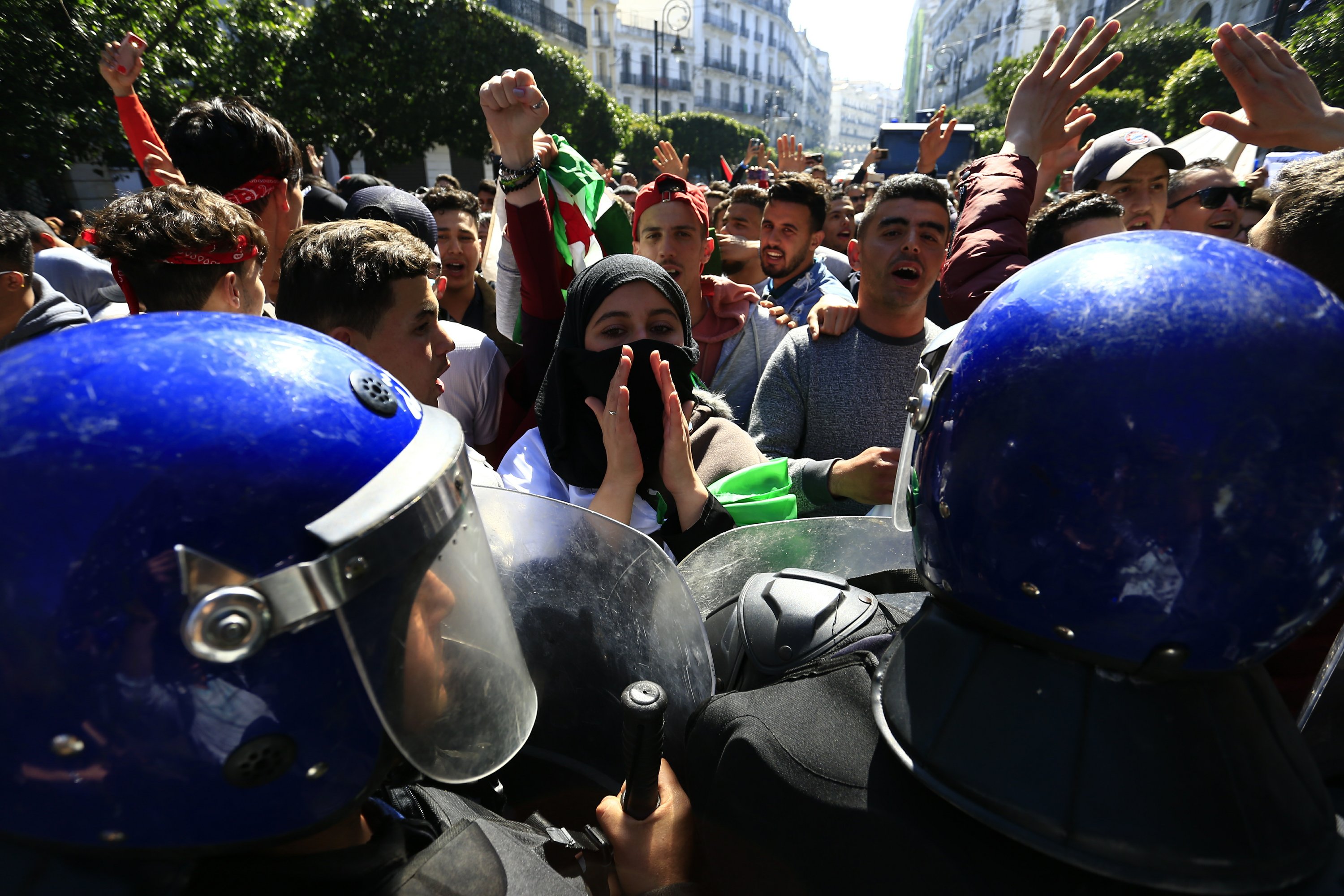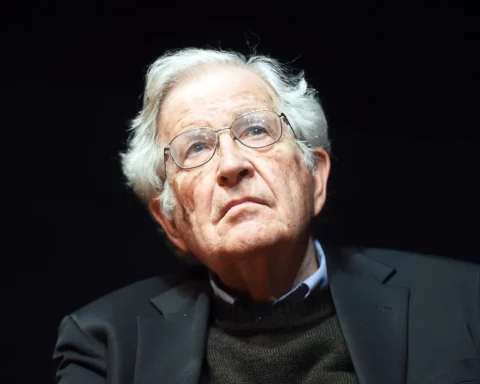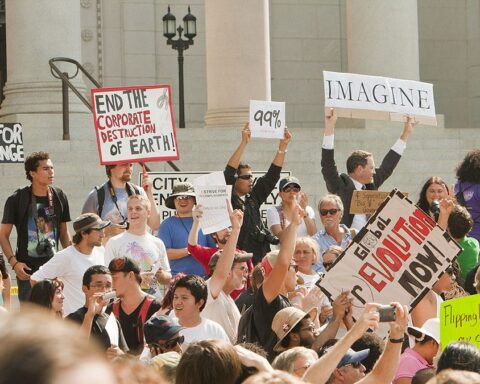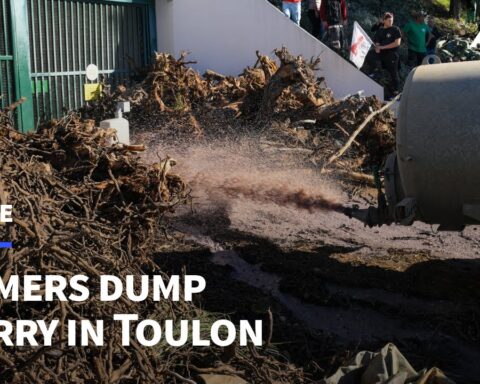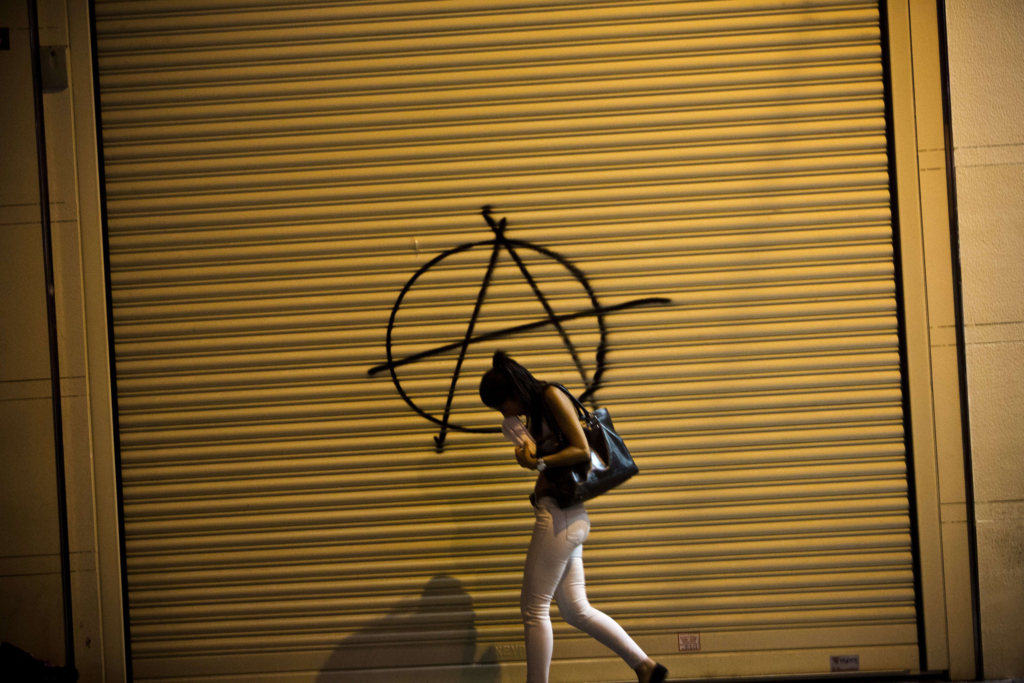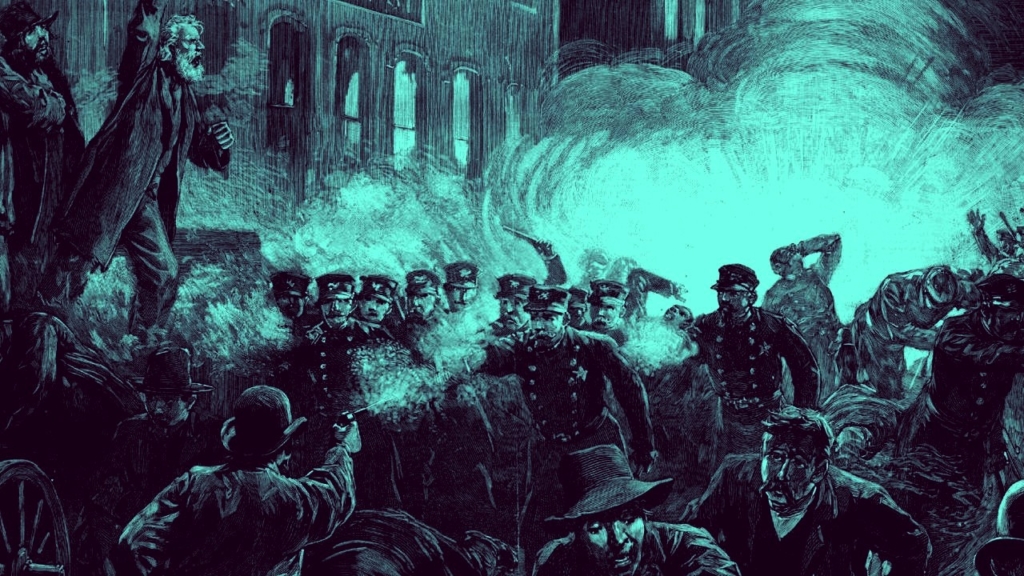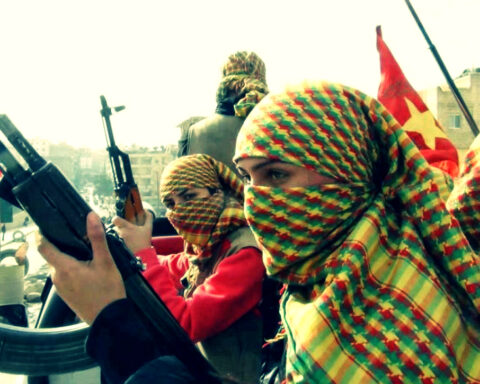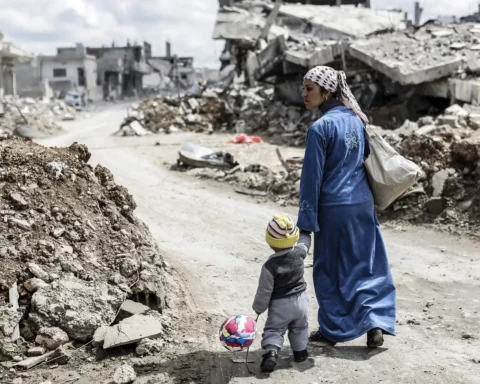The outcome of the Algerian revolution should not be pre-determined by a (neo)liberal Euro-American global order. Listen to the people.
The popular revolt in Algeria is nothing short of a forceful (re)statement of what it means to be human. An active alteration of a people’s state of being. Algerians who, for decades, were reduced to traumatized bystanders, have once again, shaken the dust off and grabbed the reins of history. The people (in the singular) no longer acquiesce to being an object of history, but a conscious and active subject of its own destiny. A fresh cadence permeates this popular indignation, novel forms of solidarity and new selves are being fashioned.
Reminiscent of colonial and orientalist tropes, for so long and in a self-projecting manner, a morally bankrupt, intellectually colonized and technically incompetent “elite” has painted and indeed treated Algerians as rough, uncivil, violent and politically adolescent. That elite, having slurped every lesson from its colonial master, had internalized its colonial subjection to such an extent that it can only make sense of itself and its existence through the gaze of its former colonial master. An “elite” that suffers from such an acute sense of alienation is also only able to view its compatriots through the same colonial lenses. Al Hogra (contempt and disdain) with which this “elite” treats Algerians can only be understood once one realizes the positionality of the former. This contempt and disdain become intelligible the moment one sobers up to the fact that those who have ruled Algeria are only able to see Algerians from the standpoint of Paris, London, and Washington. This attitude also permeates sections of the Algerian “cultural” and “intellectual” elite who have played a key role in reproducing these colonial and orientalist tropes.
In other words, for decades Algeria’s national bourgeoisie has essentially performed the role of an offshore political class, that even though it may at times be physically present on Algerian soil, has maintained its (ill-gotten) property, investments, bank accounts, and spiritual homes elsewhere. It adopts the same extractivist attitude towards “the homeland” that the colonial administration had assumed. The morbid symptoms of this psychosis are automatically transferred to Algerian political life and are manifested in the manner in which “le pouvoir” (a term used by Algerians to denote the ruling elite in the country) has treated its citizens. It is precisely this condition that the popular revolt is intent on subjecting to a therapeutic and rehabilitating revolutionary course of action.
Schooled in the anti-colonial, third-worldist, pan-Arab, pan-Africanist, and liberatory ethos of their ancestors, Algerians are determined to overcome the cognitive dissonance produced by an official discourse of sovereignty and independence, on the one hand, and an actual continuation of colonial practices and conditions of subjugation on the other. In short, Algerians are revolting against the coloniality of their present.
History teaches us that popular struggles are waged not only on the streets and for the control of public space, important as these might be, but most crucially at the level of framing, narrative, interpretation and representation of these struggles and their goals. It is critical in these moments to grapple with important questions such as: who gets to interpret the demands and goals of a people in revolt? Who gets to name it? How is the popular struggle narrated? Within what and whose frame of reference?
In the racial capitalist world we inhabit, (neo)liberalism provides the moral justification of the status quo, the language with which one ought to talk about one’s reality, the categories used to make sense of their existence. (Neo)liberalism sets the parameters of what is imagined as desirable and achievable and, by extension, what is and is not thinkable. In other words, the hegemonic hold of liberalism as a discourse of power and the ideology of the status quo gives it the authority to delineate the boundaries of “the possible” in the 21st century. As a modern form of power, liberalism mystifies its nature and function and presents itself, not as an ideology that serves particular interests, but rather as common sense anchored in claims on what “human nature” consists of.
If there is only one lesson to learn from the recent experiences of Algeria’s neighbors, then it ought to be this: The global South’s adoption of and adherence to the precepts of liberalism—its conception of “History” and historical time and understanding of what constitutes “Progress” along with the inevitable teleologies such a notion engenders—is what underpins the coloniality of the Global South’s present and what ultimately enables, in the words of Malek Bennabi, their “colonizability,” i.e. the condition(s) that render their continued subjugation possible.
Within weeks, media coverage and scholarly depictions of the Dignity Revolutions in Tunisia and Egypt as an “Arab Spring” placed them within “a discursive universe with a written past and a known future direction.” Putting aside the violence that such an act of naming entails by geographically limiting potential circuits of solidarity; for these supposedly “objective” observers, the phenomenon becomes legible only when located within a recognizable frame of reference. Whether the intended reference was the “Spring Time of Nations” in 1848, the Prague Spring of 1968, or Eastern Europe in 1989; the referential constellation remains European and liberal. The narrative subjects these revolutionary movements to historical inevitabilities. Instead of recognizing the singularity and potential novelty of these revolutionary movements—or locating them within specifically global South historical frames—the naming of the phenomenon as an “Arab Spring” shoehorns the phenomenon into an alienating spatio-temporality and assigns to it the role of object in a predetermined “March of History.”
Such analyses interpret these revolutionary movements not as moments of defiance and openings for novelty and possibility, but rather as an expression of a desire for conformity to and inclusion in “History.” These objectifying narratives are not only projected by Western analysts, but also internalized by some Algerians themselves. For instance, some Algerian liberals uncritically envisage the revolutionary movement in the country in terms of a desire to found a “Second Republic.” The implicit mental blueprint these actors have is a French Jacobin model, and their conception of a second republic draws on a frame of reference that is particular to France and its specific history, thus placing today’s Algeria temporally where France was in 1848. These conceptualizations are key in reproducing the orientalist discourses designating these countries as “backward” and thus in need of “catching up.”
Awareness of this is not meant to express a xenophobic allergy to inspiration from “foreign” experiences, but rather a critical attitude towards the models being floated and their benefits and limitations. The alienation produced by placing the colonized in a civilizational temporality that is not their own and in which they do not recognize themselves is a key target of these revolutions’ rehabilitating impulses as will be elucidated below.
The manner in which media outlets and scholarly interventions, especially in the global North, have covered the popular movement in Algeria, and the unfortunate replication of such analyses locally, indicates that history is set to repeat itself. Consciously or otherwise, the movement is interpreted through a (neo)liberal prism and narrated within (neo)liberal categories and frames of reference. It is presented as a struggle to abolish authoritarianism and corruption and calling for democracy (reductively understood as a bundle of civil and political rights, coupled with periodic elections) and a “market economy.” The Orientalism underwriting these analyses is evident in the telos they assign to the popular struggle. The unspoken assumption or rather question undergirding these perspectives is as follows: what could these people possibly want other than what the West is believed to already possess? From this perspective, the “advanced” West is the only telos for the “backward” non-West. In the words of French philosopher, Alain Badou, commenting on the so called “Arab Spring”: “Our rulers and our dominant media have suggested a simple interpretation of the riots in the Arab world: what is expressed in them is what might be called a desire for the West.”
The images chosen to highlight the peacefulness, orderliness and civility of the movement disproportionately present the young, fashionable and French-speaking protesters; read: western-oriented, secular, liberal, urban and middle class; while systematically rendering invisible those protesting in rural and working-class communities, as well as protesters with beards and headscarves. This selection bias, not to say conscious mis-representations, tacitly and subconsciously links all that is peaceful, orderly and civic with the French language, secularism, liberalism and wealth. Beards, headscarves and the Arabic language are associated in dominant representations with dust, blood, tears, anger and burning flags.
The liberal narrative also shapes the ways in which the popular demands are interpreted and represented. Take for example one of the most widespread slogans chanted by the protesters over the last eight weeks “klitou lebled ya seraqqin” (You have devoured the country, oh you thieves!). In the mainstream global mediascape, this slogan is almost uniformly interpreted as an indignation against corrupt officials and their practices. It is almost impossible to come across an interpretation that translates this slogan as an indignation against the unjust and inequitable distribution of wealth in the country. This is because doing so would render structural change and redistribution the only logical course of action to remedy this imbalance. Focusing on corruption, however, elides structural questions and developmental models that inherently produce socio-economic unevenness and engender corrupt practices, and instead focus on individuals (the bad apples, so to speak) and their punishment. In short, the liberal framing transforms a political issue into a legal one and reduces a systemic problem into an individual issue, as Corinna Mullin, Nada Trigui and Azedeh Shahshahani argue in a forthcoming article in Monthly Review (“Decolonizing Justice in Tunisia: From Transitional Justice to a People’s Tribunal”).
Furthermore, the “thieves” referred to in the slogan are uniformly understood in domestic terms, leaving out any possibility for the complicity of global actors. While the plunder of the country’s recourses has certainly been carried out through this comprador elite, and to a certain extent to its benefit, the biggest beneficiaries have been large multinational corporations and foreign governments in exchange for providing international support for this unrepresentative ruling class.
Rather than imposing ready-made analytical frames and political/civilizational temporalities on the movement; scholars, journalists, experts and opinion makers ought to listen attentively and heed the messaging of the movement through an analysis of the slogans, chants, signs, songs, and art installations featured over the past two months to form a correct understanding of the movement.
Although we cannot possibly treat every single slogan, let us look at some of the most prominent themes:
Social justice and the equitable distribution of wealth.
In addition to the slogan treated above, numerous other slogans, signs and placards were raised that contest the current uneven distribution of wealth. The “winou haqqi fel petrole?” (where is my share in the oil?) slogan evoked often over the past several decades was humorously updated to “winou haqqi fel cocaine?” (Where is my share in the cocaine?) in reference to the scandal that broke in the summer of 2018 involving 700kg of cocaine and a network of government and security officials, which led to the down fall of General Hamel (head of the police) among others. Once again, such slogans are interpreted as a rejection of ruling elite corruption, a negative posture, rather than as a call for the equitable distribution of wealth and a desire for social justice, a positive claim.
Radical democracy, dignity, popular sovereignty.
Some of the most widespread slogans deal with the theme of the people as the sole source of all power and legitimacy. In addition to the well-known “Asha’b Yurid…” (The people want…), which was raised in Tunisia, Egypt, Libya, Yemen, Syria and most recently Sudan; “Lebled bledna w’ ‘endirou Rayna” (this is our country, and our will shall reign supreme) has been more specific to the movement in Algeria. This slogan was raised after tens of millions took to the streets beginning in mid-March to call for suspending the current constitution, which is seen as an illegitimate document drafted and adopted with no popular involvement, by the very people the movement seeks to dislodge and underpinning the institutional arrangements it seeks to alter. Even when the military leadership opted for a “constitutional solution,” the movement insisted on the primacy of Articles 7 and 8, which stipulate that the people are the source of all authority and to them belongs all constituent power. Another variation of the slogan was lebled bledna w’ el Gaz Dyelna (the country is ours and so is its gas [natural resources]). This version makes direct reference to the need for popular sovereignty over the country’s natural resources, which are seen to have been used by the ruling elite to buy external legitimacy. The attempts to denationalize the hydrocarbons sector (nationalized in 1971) in the early 2000s and the major concessions given to large oil multinationals over the last twenty odd years have been the subject of continuous public criticism and are seen as an affront to the country’s sovereignty.
Egalitarian republicanism and decolonization.
One of the most prominent slogans chanted up until Bouteflika’s removal was: Jumhuriyya machi memlaka (this is a republic, not a kingdom). Not only is this a rejection of Bouteflika’s patrimonialization of power, but also of a general trend of the imperialist powers to favor monarchies as a system of power more amendable to realizing their interests in the region (e.g. Gulf countries, Morocco and Jordan). In the post-colonial republics, there have been an effort to repress the republican spirit and instead promote monarchical tendencies. The movement sees itself as fulfilling the dreams of their ancestors who liberated the land from direct colonial domination to establish an egalitarian society that ensures the enjoyment of one’s humanity in the fullest. The republic envisioned in the founding document of the Algerian revolution against colonial rule, Declaration of the 1st of November 1954, was conceived as a stepping stone to wider regional integration. The nation-state was conceived not as an end in itself, but rather as a means to human emancipation.
Principled politics, not a politics of interests.
In general, political satire has been a “weapon of the weak” in many revolutionary mobilizations around the world, but has a long tradition in Algeria in particular. Mockery and ridicule of the powers that be has the potential to puncture the mythology that tends to accompany power and render visible its occult workings. The omnipresence of “cachir” (Algerian Baloni/salami) in the protests over the last two months in Algeria is a case in point. The political significance of cachir goes back to the 2014 presidential campaign, in which parties of the ruling coalition offered a cachir sandwich and a small sum of money to people who would join their political rallies and fill the rooms to give the false impression of the popularity of the parties in question. The use of cachir in the current revolutionary mobilization expresses three political messages. First, it is a condemnation of the political parties engaged in what Algerians call “boulitique” as opposed to “politique,” a term coined by the Algerian philosopher Malek Bennabi to denote a political elite’s state of confusion, lack of vision and a concern for individual as opposed to collective interests. The second message is aimed at that part of the Algerian population as a condemnation for selling their souls to these parties and turning a blind eye to the country’s plunder for such a low price as a cachir sandwich. Third, and most importantly, the art installations involving cachir express a desire for a principled politics based on political vision and conviction, a concern for the collective good rather than narrow self-interest, and a struggle to emancipate and fully restore the humanity of Algerians as a complementary stage of their liberation in 1962.
Anti-imperialism and internationalism.
The prevalence of posters rejecting foreign intervention and linking the current mobilization to the anti-colonial struggle of the 20th century provide observers with a valuable insight of the political temporality inhabited by the Algerian revolutionary movement.
Unlike the alienating framings discussed above, which try to shoehorn the current moment in a European temporality that is associated with yesterday’s colonial oppressors, protesters in Algeria understand their struggle as a continuation of the anti-colonial struggle. Rather than seeing this mobilization as yet another link in the chain extending from 1848 to 1968 to 1989 to the present; Algerians place their struggle firmly in a subaltern temporality that extends from the early days of resistance to French colonial encroachment to the anti-colonial epic of 1954-62. The raising of slogans calling for the establishment of “Jumhuriyya Novambariyya” (A November-ist Republic), in reference to the declaration of November 1st, 1954, is just one example among many.
The constant appearance of the Palestinian flag alongside the Algerian one in the current revolutionary mobilization is another example. Not only does it express solidarity with the Palestinians in their struggle for liberation from settler colonialism, but it is also a restatement and a refashioning of Algerian subjectivity in terms of anti-colonialism, anti-imperialism, pan-Arabism, Muslim internationalism, Afro-Asianism and Third-Worldism making these an “applied sociology” rather than mere “mythologies” and empty slogans. It is a recalibration of (neo)colonial spatiality adopted by the Algerian political elite and imposed on the Algerian people in the context of decolonization, to a subaltern spatiality, placing Algerian subjectivity on the Lima-Tangiers-Jakarta rather than the Washington-London-Paris axis.
The Algerian revolt is thus engaged in the reworking of the temporal and spatial order that underpins the coloniality of its present and sustains the conditions of its colonizability. It is a struggle against the hegemonic liberal subjectivity promoted by the status quo, which reduces one’s humanity to citizenship within an externally shaped and driven nation-state and the ability to consume goods on the world market. It is a struggle for an alternative subjectivity that shatters the artificial colonial scars (often referred to as borders), both physical and mental, which have fettered humanity for so long, and the construction of the conditions for genuine human emancipation. Algerians, to paraphrase Fanon, have (re)discovered their mission and have chosen not to betray it but rather to fulfill it.
Brahim Roubah
source: Africa is a Country
